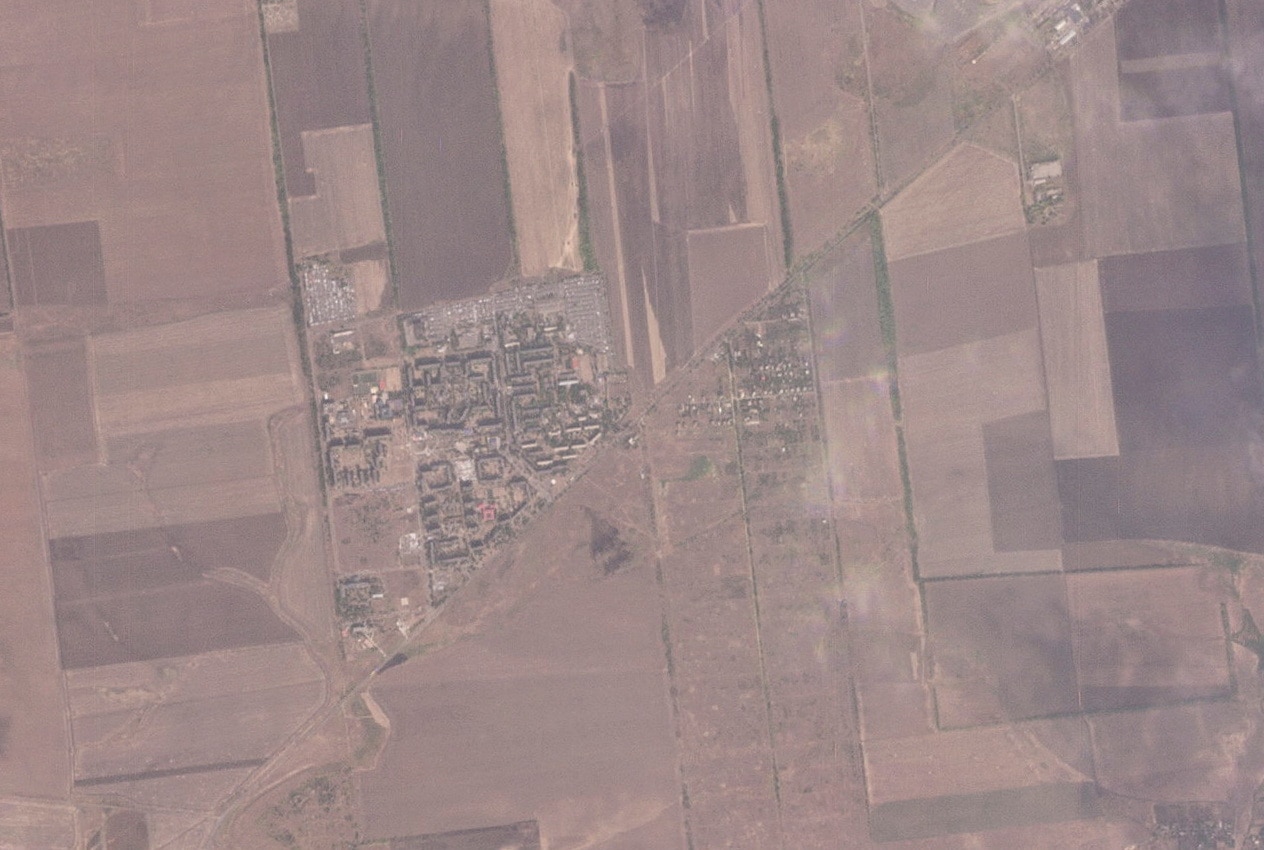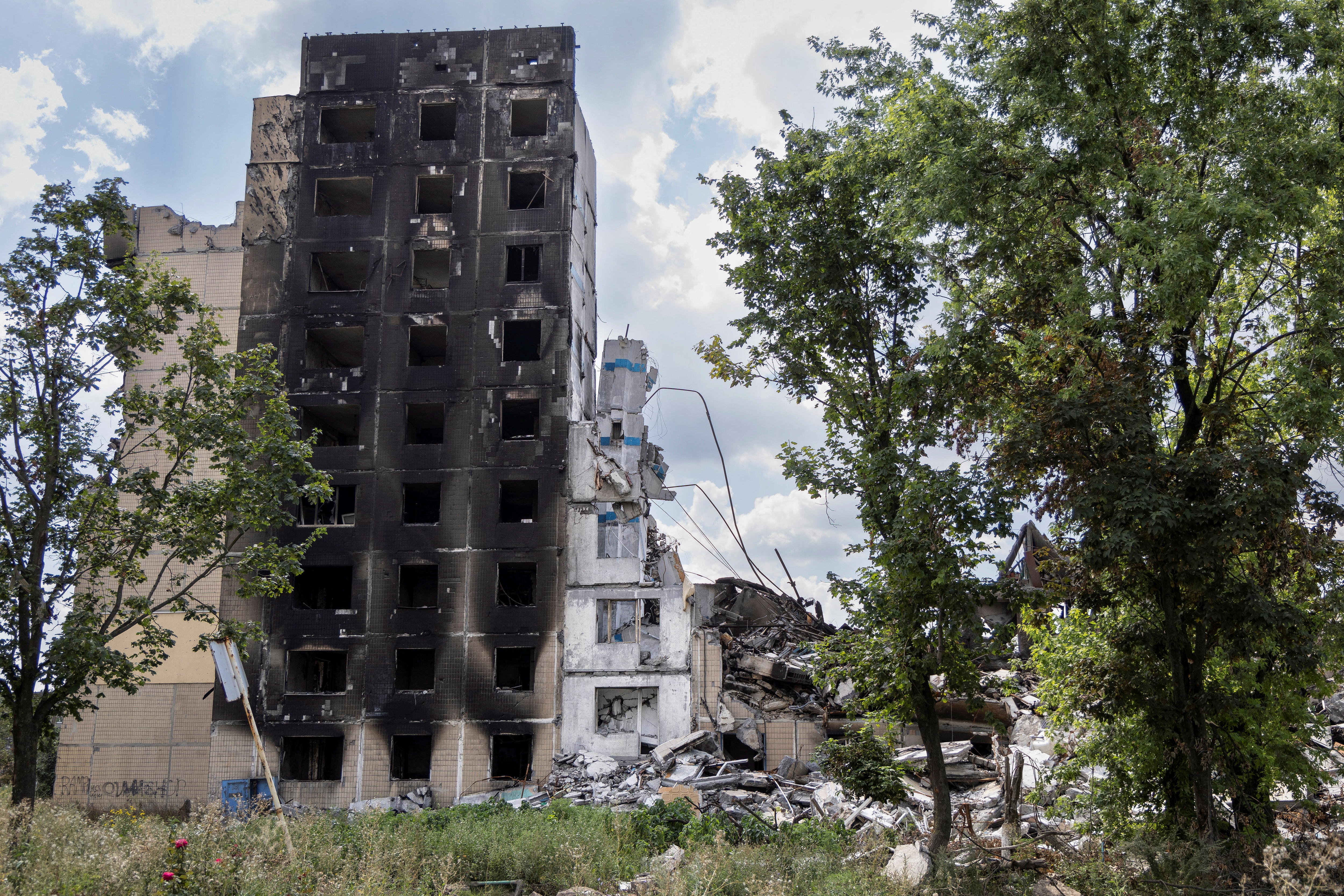Russia has captured Vuhledar after two years of Ukrainian resistance. How significant is the capture?
Ukrainian soldiers have spent the last two years fighting tooth and nail in the key front-line town of Vuhledar to resist repeated Russian attack.
But this week, those troops received an order to pull back from the town in the country's eastern Donetsk region to avoid encirclement by Russian troops and "preserve personnel and military equipment", Ukraine's eastern military command confirmed.
The advance of Moscow's forces means that Russian troops are now in complete control of the town — which Russia has long regarded as one of Ukraine's toughest fortified positions to crack.
The capture is a major boost for the Kremlin and has confirmed Russia's vast superiority in men and material as Ukraine pleads for more weapons from the Western allies that have been supporting it.
But how significant is it really? Here's what we know.
What is Vuhledar?
Vuhledar is on strategic high ground in eastern Ukraine that has resisted Russian assaults since Moscow's full-scale invasion in 2022.
The town, whose name means 'gift of coal', was built around a mine by the Soviet Union in the mid-1960s.
It had a pre-war population of over 14,000, nearly all of whom have fled following Russia's capture which left the town devastated.

A satellite view of Vuhledar.
Why did Russia want to take Vuhledar?
Moscow says the Donetsk region is one of four Ukrainian regions it has annexed since 2022, a claim Kyiv rejects as illegal.
Moscow saw taking control of Vuhledar as an important stepping stone to incorporating the entire region into Russia.
Both sides consider control of the town important due to its position on elevated ground and because it sits at the intersection of the eastern and southern battlefield fronts — giving it added significance when it comes to supplying both sides' forces.
While Ukrainian forces were in full control of Vuhledar, they were able to use the town as a platform to shell Russian military supply lines in the area.
The town sits close to a railway line from Crimea, the Black Sea peninsula which Russia annexed from Ukraine in 2014, to Ukraine's industrialised Donbas region which comprises Donetsk and the eastern region of Luhansk, most of which Moscow controls.
Taking Vuhledar, which Russia portrays as one of the last Ukrainian strongholds in southern Donetsk, opens the way for Russian forces to advance on other areas.

The front-line town had a pre-war population of 14,000.
How did Russia take control?
Russian forces trapped Ukrainian soldiers in Vuhledar in what they called a 'mini-cauldron'.
To translate, they gradually encircled it from all sides and thus making it increasingly difficult for Ukrainian forces to resupply or rotate in and out of the town.
When such a cauldron closes (something Russian military bloggers say has already happened) there is no way in or out for the defenders — who in this case were bombarded with devastating aerial glide bombs.
Russian forces had previously launched at least four major attempts to take Vuhledar, but had been repelled with Ukraine's 72nd Separate Mechanised Brigade mounting fierce resistance.
Neither side discloses losses, but Ukrainian officials said Russian losses sustained during previous failed attempts to take the town had been significant. Moscow says Ukraine also paid a high human price when trying to retain Vuhledar.
How significant is the capture?
This victory is significant for a few reasons.
Speaking to ABC News Channel, Director of the Ukrainian Studies Foundation Olga Boichak said that it is important to understand that each city captured by Russia "is no more".
"When we hear the news that another city has fallen to the Russian occupants, we have to understand that this is one more example of Russia's scorched earth policy," she said.
"There's really no building intact in Vuhledar anymore and the Ukrainian army has held it heroically for almost two years and had to surrender because they were short on," she said.
She said the capture was "really tragic" for Ukraine, both in the immediate perspective and through long-term effects.
"We have the eastern battlefront, that's the sort of the Donetsk direction, and we also have the southern battlefront which is closer to Zaporizhzhia," she said.
"So right now with the falling of Vuhledar, we can pretty much see a united single front which is the eastern and the southern ends really jeopardises the Pokrovsk."
But when it comes to long-term effects, Ms Boichak says the most important is asking where and when will Putin stop?
"I think we are wise enough to know the answer and that answer is, 'no'," she said.
ABC/wires
By:https://www.abc.net.au/news/2024-10-03/russia-captures-vuhledar-after-two-years-of-ukrainian-resistance/104426592(责任编辑:admin)
下一篇:Princess Catherine hugs cancer patient in first photograph of her returning to work after chemotherapy
 Socceroos rescue a point
Socceroos rescue a point  Wallabies thrash Wales 52
Wallabies thrash Wales 52 Jake Paul beats Mike Tyso
Jake Paul beats Mike Tyso Live updates: England vs
Live updates: England vs  US election 2024: Donald
US election 2024: Donald  US election live: Kamala
US election live: Kamala
- ·North Korea's latest weapon agains
- ·Hezbollah says Israel 'cannot impo
- ·Inside the rise of US oligarchs and how
- ·Thailand's worst suspected serial
- ·Tabi shoes are turning heads from Holly
- ·FBI arrests Florida man planning attack
- ·Illegal immigrant gets life sentence fo
- ·Bibles, water, watches and sneakers: Do
- ·North Korea's latest weapon against
- ·Hezbollah says Israel 'cannot impose
- ·Inside the rise of US oligarchs and how i
- ·Thailand's worst suspected serial ki
- ·Tabi shoes are turning heads from Hollywo
- ·FBI arrests Florida man planning attack o
- ·Illegal immigrant gets life sentence for
- ·Bibles, water, watches and sneakers: Dona
- ·US to give Kyiv anti-personnel landmines
- ·An arrest warrant for Benjamin Netanyahu
- ·One of Vietnam's high-profile politi
- ·Shanghai Walmart Attack: A Man Randomly S
- ·South Korean police officers jailed over
- ·Cambodia publicly shames maid deported af
- ·North Korea to use all forces including n
- ·Philippines condemns China attack of Viet
- ·US adds 2 more Chinese companies to Uyghu
- ·North Korean defector steals South Korean
- ·Malaysia deports Cambodian worker for cal
- ·Rebels battle for Myanmar junta’s weste

